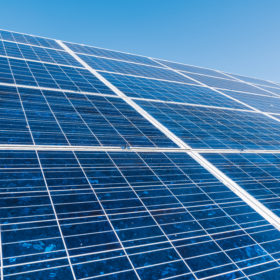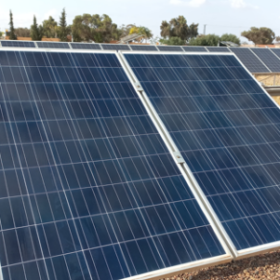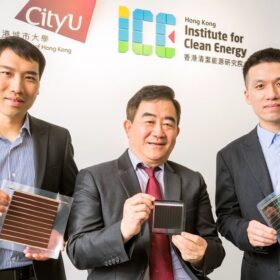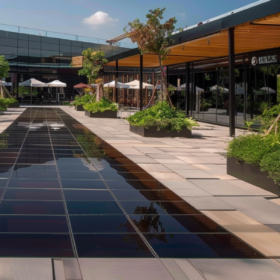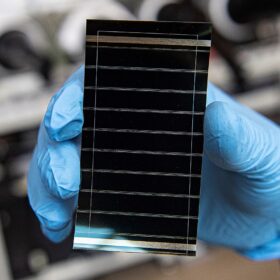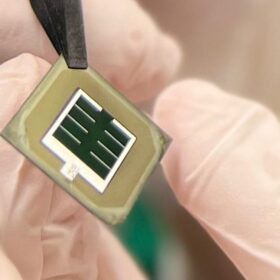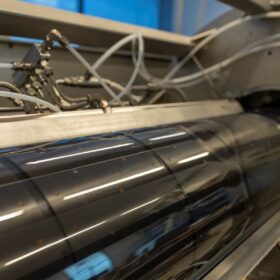Chinese PV Industry Brief: Nation’s January-July PV capacity hits 123.53 GW
China’s National Energy Administration (NEA) says the country installed 21.05 GW of solar capacity in July 2024, bringing the year’s total to 123.53 GW, while China Huadian Group has launched a 16.03 GW PV module procurement tender.
New research finds solar module anti-reflective coatings may reduce LCOE by over 2%
Researchers in Morocco have examined the effects of an anti-reflective coating on solar panel performance under desert conditions and have found that it enhanced both the annual performance ratio and the energy yield by 2% and 5.5%, respectively. They have also found it to be durable and able to withstand dry cleaning methods under accelerated testing.
Getting lightweight, flexible, semi-transparent PV from lab to fab
German research group Helmholtz Association hopes to speed up the adoption of flexible printed solar PV technologies by transferring advances in the lab to industry through its growing Solar TAP initiative.
Monolithic perovskite-organic tandem solar cell achieves 24.27% efficiency
Researchers at City University of Hong Kong have developed a monolithic perovskite-organic tandem solar cell with a wide-bandgap subcell that reportedly provides “remarkable” stability. The tandem device achieved one of the highest efficiencies ever reported for this type of solar cell technology.
Solar PV flooring for residential, commercial use
Turkey-based Ankara Solar Energy launched its own brand of walkable PV flooring for residential and commercial projects. Its 30 W and 120 W square panels with anti-slip glass front covers are sold with a supportive pedestal system, and are now available for the European and U.S. markets.
U.S. solar car race success for two Canadian teams
Solar car teams from Canada outperformed in two categories of the latest Electrek American Solar Challenge. The student team from Polytechnique Montréal won first in the multiple occupant vehicle category, and the students from École de technologie supérieure won second place in the single occupant vehicle category.
Making perovskite solar PV circular from the start
U.S researchers at the Department of Energy’s National Renewable Energy Laboratory used a circular economy framework to determine how to scale, deploy, and design metal halide perovskite solar panels to be easily recyclable in the future.
KAUST reveals details of 33.7%-efficient perovskite-silicon tandem solar cell
In a new scientific paper, researchers from the King Abdullah University of Science and Technology (KAUST) in Saudi Arabia presented the 33.7%-efficient perovskite-silicon tandem solar cell announced in May last year. They explained the device is based on a perovskite additive known as tetrahydrotriazinium that reportedly enhances the phase stability of the perovskite film under heat and light conditions.
Kalpana Systems launches roll-to-roll spatial atomic layer deposition tools
Kalpana Systems, a Dutch equipment manufacturer, is launching spatial atomic layer deposition (sALD) tools to be used in roll-to-roll manufacturing processes in the solar PV, organic light emitting diode, battery and packaging industries. The initial application is expected to be barrier layer deposition.
Sinovoltaics updates PV inverter manufacturer financial stability ranking
The latest financial stability ranking of inverter manufacturers lists Hoymiles Power Electronics, Eaton, Enphase, Kstar and Delta Electronics as the top five.
